Inside the Migrant Shelters
On both sides of the border, a network of shelters provides refuge for the weary.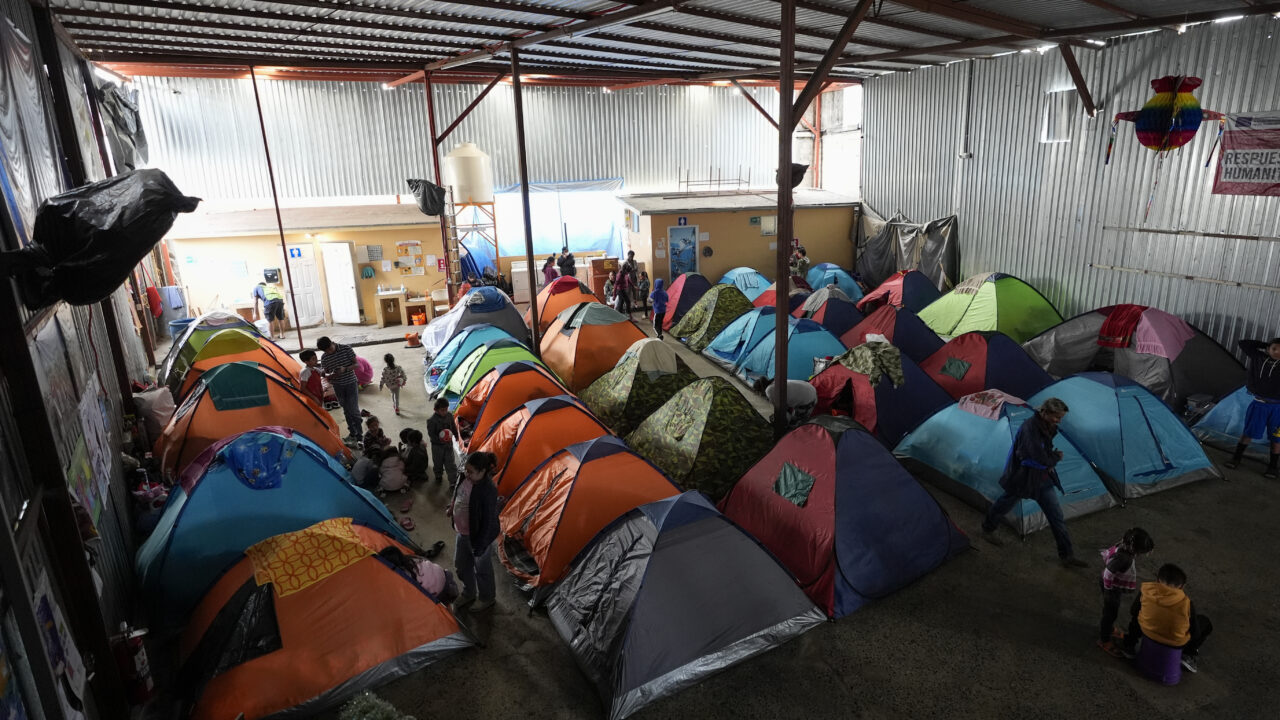 Asylum seekers wait for appointments through the CBP One app to apply for asylum in the United States in a shelter for migrants, Saturday, Feb. 3, 2024, in Tijuana, Mexico. (AP Photo/Gregory Bull)
This is Part of the "At the Border in 2024" Dig series
Asylum seekers wait for appointments through the CBP One app to apply for asylum in the United States in a shelter for migrants, Saturday, Feb. 3, 2024, in Tijuana, Mexico. (AP Photo/Gregory Bull)
This is Part of the "At the Border in 2024" Dig series
Migrant shelters, holding anywhere from several to several hundred people, offer free lodging to people looking to make their way through Mexico to the U.S. border. Some are Christian organizations – Catholic or evangelical — some are only for families and some are just for women, children or single men. Some visitors stay for a night or two before continuing their journey, while others are locked in place for months as they wait for paperwork or try to earn enough money to move on. Shelter life is defined by strict daily schedules, a lack of privacy and freedom, temporary friendships and monotony. It also serves as a windbreaker, keeping migrants separated from a world of kidnapping for ransom, robbery and extortion.
While they act as safe havens for migrants who pass through their doors, several prominent shelter organizers in Mexico have been publicly accused of participating in human trafficking to organized crime groups who prey upon the most vulnerable. On the other side of the border, the conservative Texas government has promised to shut down several well-known shelters this year, meaning the shelters face significant legal battles.
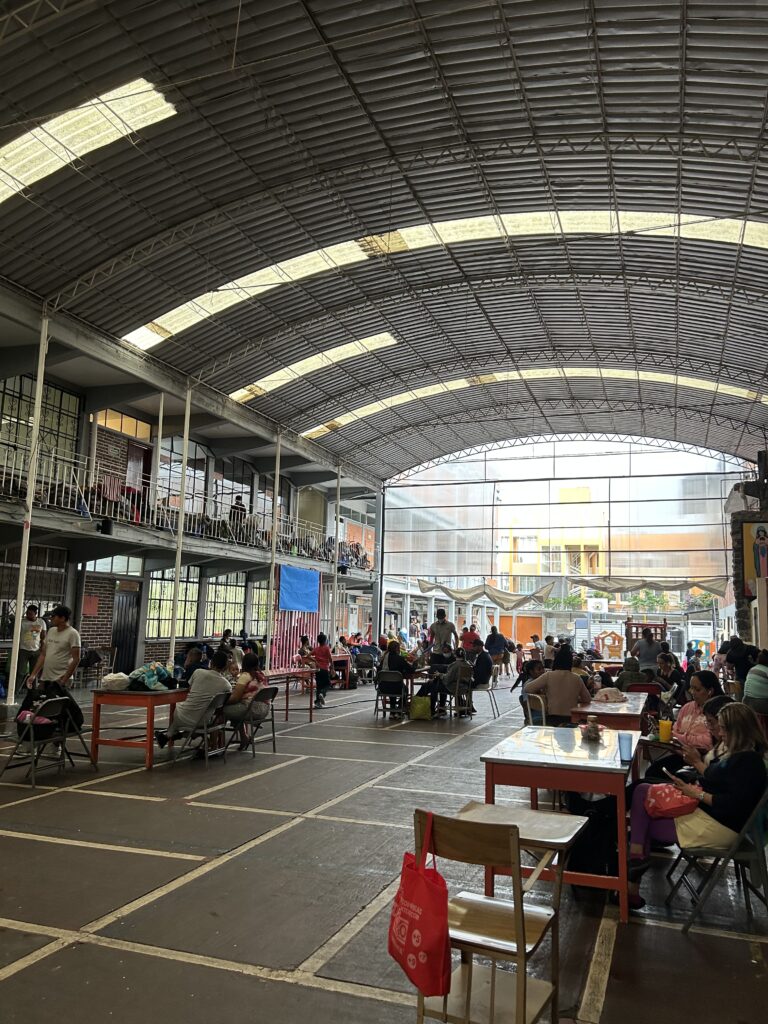
Tapachula, Mexico: In a dark foyer stacked with cardboard boxes full of canned goods, a small TV sits high on a wall, a fan of children staring up intently at cartoons. There are two rooms with bunk beds — one for men, one for women and children — but the shelter is full, so some men are sleeping in the hallways and courtyard, using backpacks as pillows. All are waiting in this small city on Mexico’s border with Guatemala for papers from the Mexican government that function as a license to continue north. The food is usually spaghetti or rice and beans. Residents can leave shelter premises only once a day. To return, their identities must be verified at the door.
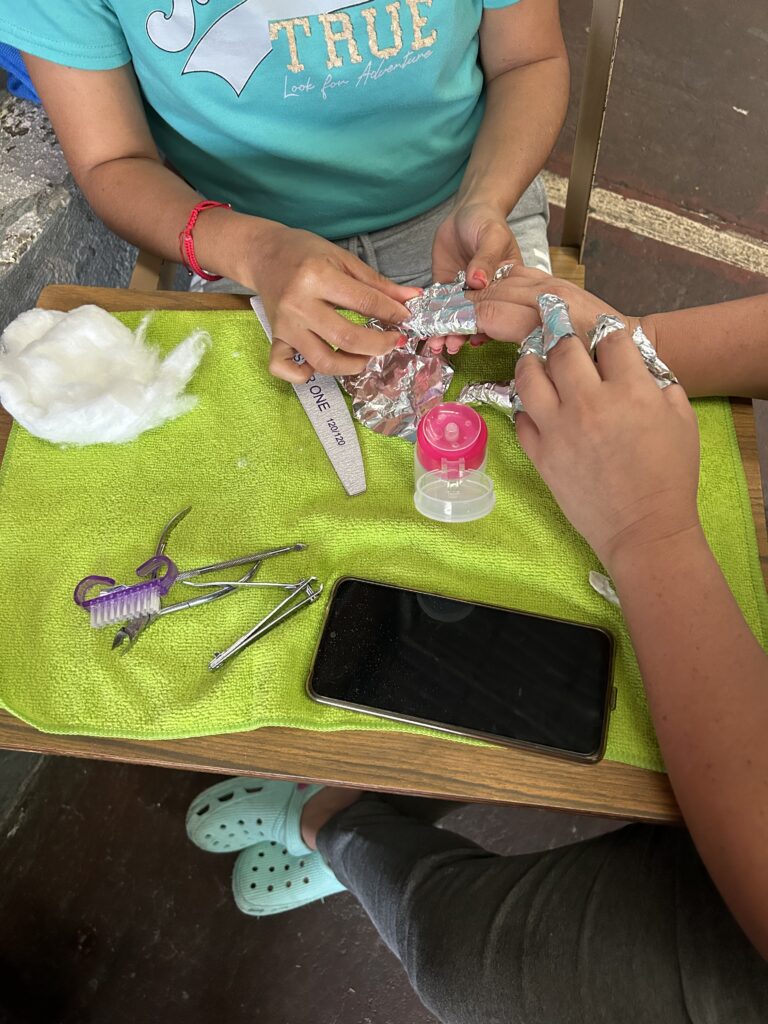
Northern Mexico City: A woman and two small children lay wrapped in blankets on the concrete floor in an expansive, covered courtyard. They have made it hundreds of miles north but have a long way to go. The rows of tables and chairs are abuzz with conversation and barter. In one corner, a woman folds another’s nails in foil, preparing to apply acrylics. In another corner, a teenager with an electric razor schedules customers for haircuts. A line forms next to the door to the kitchen as people ask what will be served for dinner.
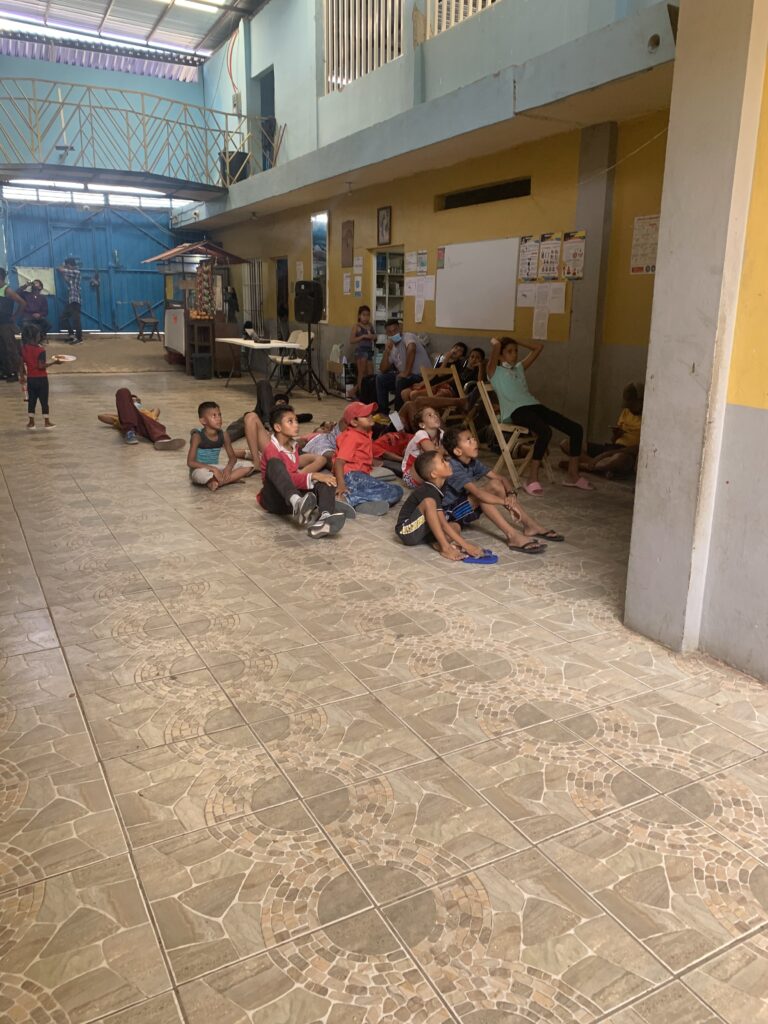
El Paso, Texas: In a dark room only accessible through a padlocked gate, a mother sheds silent tears of relief when asked about her journey from Venezuela. The family, including a toddler, had arrived the day before. The primary room holds a few dozen blue mesh cots. A boy plays video games on his phone while his parents engage in a hushed conversation about where to go next. For weeks, their journey had been focused on crossing the border. Now in the United States, the sheer quantity of possible futures leaves them paralyzed in place.
Your support is crucial…With an uncertain future and a new administration casting doubt on press freedoms, the danger is clear: The truth is at risk.
Now is the time to give. Your tax-deductible support allows us to dig deeper, delivering fearless investigative reporting and analysis that exposes what’s really happening — without compromise.
Stand with our courageous journalists. Donate today to protect a free press, uphold democracy and unearth untold stories.

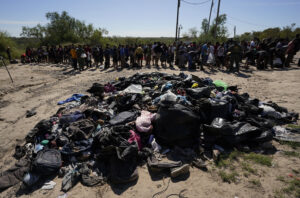

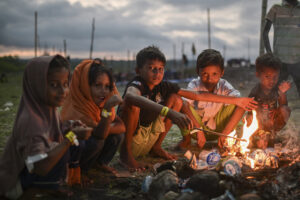
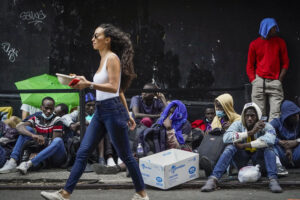

You need to be a supporter to comment.
There are currently no responses to this article.
Be the first to respond.